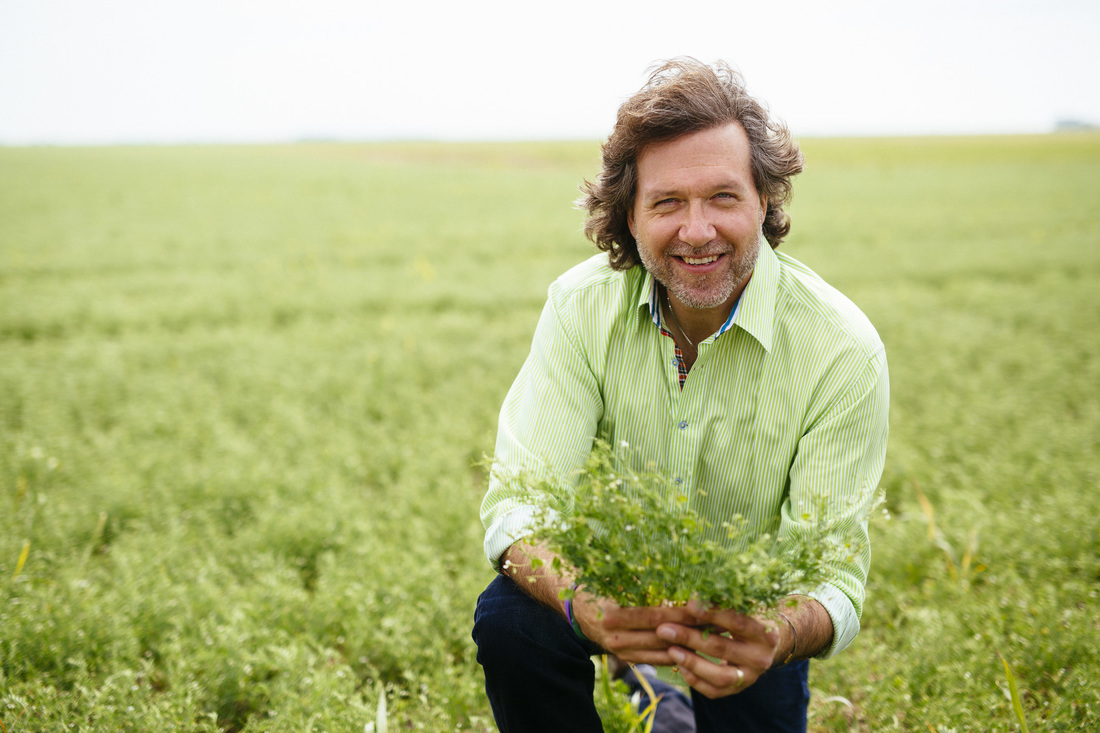Eating pulses is a great way to show your support for World Food Day, says Chef Michael Smith10/12/2016 WINNIPEG - Chef Michael Smith is asking Canadians to support World Food Day on October 16 by taking a climate-friendly approach to food and eating more pulses. This year's World Food Day theme is "Climate is changing. Food and agriculture must too."
Also read, Chef Michael Smith encourages consumers to eat healthier with the new Half Your Plate Instructional Cooking Series. "Every Canadian family can make a positive and immediate impact on our climate by eating pulses," says Chef Smith, who has served as Canada's International Year of Pulses Ambassador. "Peas, beans, chickpeas and lentils are good for your health and the health of the planet." Pulses are an earth friendly food. They have a low carbon footprint and are a water-efficient source of protein. Pulses also improve soil health by feeding soil microbes. "When farmers grow pulses, they feed millions of people in a way that actually gives back to the land. Pulses, in partnership with a range of other foods, represent how Canadians can make a positive impact on the environment," says Denis Tremorin, Director of Sustainability at Pulse Canada. In addition to being good for the planet, pulses are a low-fat source of protein, fibre and many vitamins and minerals. Pulses are an affordable part of a healthy diet and play an important role in the management of diet-related diseases like diabetes and heart disease. More information about pulses can be found at www.pulses.org. The Food and Agriculture Organization of the United Nations (FAO) celebrates World Food Day each year on 16 October to commemorate the founding of the Organization in 1945. Events are organized in over 150 countries across the world, making it one of the most celebrated days of the UN calendar. These events promote worldwide awareness and action for those who suffer from hunger and for the need to ensure food security and nutritious diets for all. According to the FAO, the global population is growing steadily and is expected to reach 9.6 billion by 2050. To meet such a heavy demand, agriculture and food systems will need to adapt to the adverse effects of climate change and become more resilient, productive and sustainable. Pulses are in the spotlight in 2016 as the world celebrates International Year of Pulses. The United Nations declared 2016 the International Year of Pulses (IYP) to celebrate pulses' contribution to health, nutrition and environmental sustainability. Additional Background Information Canada is the world's largest producer and exporter of dry peas and lentils and a major supplier of pulses to over 150 countries around the world, and plays an important role in sustainable food production. Pulses and Environmental Sustainability Facts
Source Pulse Canada
0 Comments
Leave a Reply. |
Advertisement
News & Updates
Stay informed with the latest news around foodservice, agriculture and other related food news. Advertisement Opportunities
|


 RSS Feed
RSS Feed


